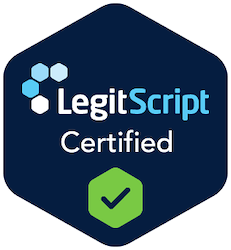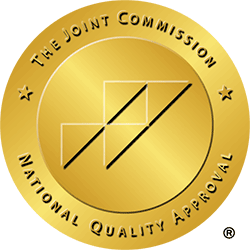
At BriteLife Recovery, we understand that one of the most challenging aspects of recovery is learning to identify and manage triggers. Triggers are cues—external or internal—that provoke memories, emotions, or thoughts associated with substance use. Recognizing and understanding triggers is essential for maintaining sobriety and building a healthy, substance-free life.
What Are Triggers?
Triggers are anything that can initiate a craving or urge to use substances. They can be people, places, situations, or even thoughts and emotions that remind someone of their past use or the feelings associated with it. These cues activate the brain’s reward system, making it challenging for individuals in recovery to resist the temptation to relapse.
Triggers can be divided into two main categories:
- External Triggers: These are environmental cues that remind someone of their substance use. Examples include seeing a bar or passing by a place where they used to use drugs, attending a party, or interacting with people associated with their past substance use.
- Internal Triggers: These are psychological or emotional cues. They can be more subtle and include emotions like stress, sadness, anxiety, or even happiness. Memories or certain thoughts can also act as internal triggers.
What Do Triggers Look Like?
Triggers are highly individualized, meaning what affects one person may not have the same effect on another. Here are some examples of what triggers can look like in real-life scenarios:
- Social Situations: Being in social settings where others are drinking or using drugs can be a powerful trigger. These environments may remind an individual of past behaviors and create a strong urge to use.
- Emotional States: Negative emotions such as anger, sadness, loneliness, or stress are common internal triggers. For instance, someone might have used substances in the past to cope with stress, so feeling stressed in recovery can trigger a craving.
- Celebratory Events: Positive emotions can be triggers too. Celebrations or moments of joy can be associated with past substance use as a way of enhancing enjoyment. For example, someone might feel the urge to drink during a holiday or birthday celebration because it was part of their routine in the past.
- Specific People: Encountering friends or acquaintances with whom someone used to use substances can trigger strong memories and desires to return to old habits. Even seeing or hearing from them can be enough to act as a trigger.
- Locations and Sensory Triggers: Visiting or passing by a location where an individual used to use substances can act as a powerful trigger. Similarly, certain smells, songs, or even tastes can evoke memories associated with substance use.
How to Manage Triggers
Understanding what triggers look like is crucial, but knowing how to manage them is equally important for maintaining sobriety. Here are some strategies for coping with triggers:
- Develop a Support System: Having a network of supportive friends, family, and peers can make it easier to navigate triggers. Support groups and therapy sessions provide a safe space to discuss and learn new coping mechanisms.
- Create a Plan: Work with a therapist or recovery specialist to develop a personalized plan for managing triggers. This plan might include activities like deep breathing, journaling, or taking a walk when triggers arise.
- Avoid High-Risk Situations: While it’s not always possible to avoid triggers, minimizing exposure to known high-risk situations can help reduce cravings.
- Practice Mindfulness: Mindfulness and grounding techniques can help individuals stay present and aware of their emotions without being overwhelmed by them.

Conclusion
Triggers are an inevitable part of the recovery journey, but understanding what they are and how they manifest can empower individuals to handle them effectively. At BriteLife Recovery, we equip our clients with the tools and strategies needed to identify triggers, develop healthy responses, and stay committed to long-term recovery. If you or a loved one need support in navigating triggers and maintaining sobriety, reach out to BriteLife Recovery for comprehensive care and guidance.
SPEAK WITH AN ADDICTION SPECIALIST



